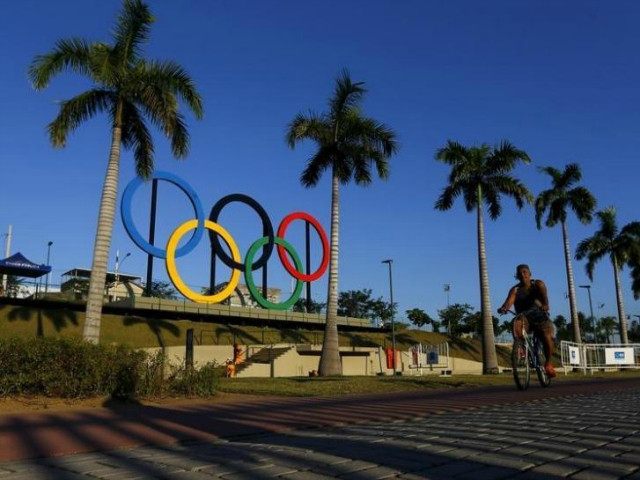The mayor of Rio de Janeiro, Eduardo Paes, has given his first interview since the deadly collapse of a bridge built for the 2016 Summer Olympics, attempting to reassure natives and tourists alike that the Olympics will be safe and his team will “double-check” every detail.
The interview, in Brazil’s O Globo newspaper, arrives as Brazil marks 100 days before the Summer Olympics Opening Ceremonies.
Paes faces concerns that the Olympics will be marred by a burgeoning Zika virus epidemic that has affected nearly 100,000 Brazilians, widespread government corruption involving Olympics facilities, and engineering failures that may cause more deadly incidents like that on the Tim Maia bridge in his city last week. The bridge collapsed with at least five people on it due to a powerful wave hitting it on the side. Paes tells O Globo that he does not expect any more such incidents.
“Obviously, when an accident happens that where people die, your last concern is your public image abroad,” he tells the newspaper, admitting that the collapse “comes at a very bad time,” but arguing that it “does not do justice to everything that is being done in the city.” “The equipment is very nice and on time, aside from the delay of the velodrome,” he argues. “All the rules are being followed, monitored, checked, and double-checked.”
Paes admits that the bridge collapsed because of a “design flaw,” not just errors in executing the design. He refuses to issue blame to any of the companies involved in its construction when asked by O Globo. “Only an investigation will be able to give answers. Let’s point fingers after the hearings.”
Paes asserts that the International Olympic Committee (IOC) is pleased with Rio de Janeiro’s preparations.
“We have a trust relationship with the International Olympic Committee,” he asserts. The IOC has indeed issued overwhemingly optimistic statements about the Olympics, going so far as to hope they will “unite the Brazilian people” as their Congress seeks to impeach President Dilma Rousseff, a move widely supported by Brazilians.
Critics contend, however, that the collapse of the Tim Maia bridge is a warning that those organizing Olympics constructions cut corners and ignored obvious design flaws to save money. Such an attitude towards construction nearly guarantees more tragedies. While Paes tells O Globo that he hopes to see the bridge up and functional as soon as possible, architect Ana Teresa Nadruz tells Rio de Janeiro’s O Dia the safest choice is to not rebuild the same model. “This bike path is doomed. You have to demolish it,” the veteran architect argues, pointing out a number of individual flaw that point to rushed, shoddy work. “This is for those in a hurry,” she argues, noting that the pillars holding up the bridge were made with precast materials. “You make shopping malls with precast materials, things that are not subject to the elements of the sea.”
O Dia notes that Rio de Janeiro has at least canceled its contracts with the companies responsible for the structure until an investigation can clarify what went wrong.
By some metrics, the rushed construction projects are paying off – Brazil is ahead of schedule in constructions compared to plans for the 2014 World Cup, held in various stadiums throughout the country. Brazil’s dire economic situation and negative publicity regarding the various crises plaguing the nation are keeping ticket sales down, however, and many worry that, even if the facilities do not collapse, there is a chance of a power outage occurring in the middle of a major event.
Human rights groups have also begun to express concerns that Rio’s police are beginning to use brutal measures to keep the city’s poor from being an eyesore to affluent tourists. Police have begun to raid the city’s favelas, or impoverished outskirts, and putting “street children” in jails. Street children tend to be orphans or the children of criminals or drug abusers, who in turn often become thieves to survive and turn to drugs. Rio de Janeiro has few options for juvenile rehabilitation, but the city’s police are obligated to keep theft from tourists at a minimum.
Amnesty International is also warning that incidents of police brutality are on the rise. At least eleven people, including a five-year-old child, were killed by police in Rio this month. During the 2014 World Cup, police homicide cases increased 40 percent nationwide.
Rio de Janeiro will boast a 67,000-strong military force to keep the games safe. “Practically the entire security apparatus of the nation will be use,” O Globo notes. Additionally, international counterterrorism forces will be on the ground to help with potential threats from groups like the Islamic State, who often threaten to bomb crowded areas and public spectacles in the West.

COMMENTS
Please let us know if you're having issues with commenting.